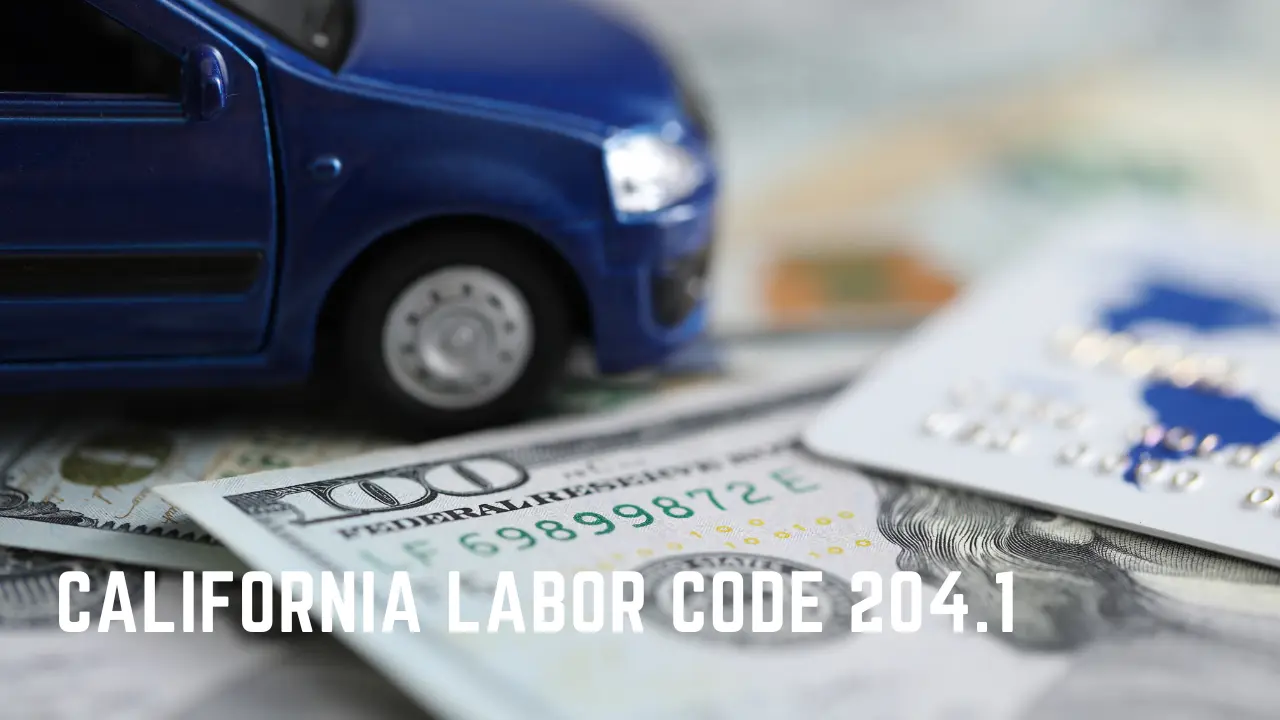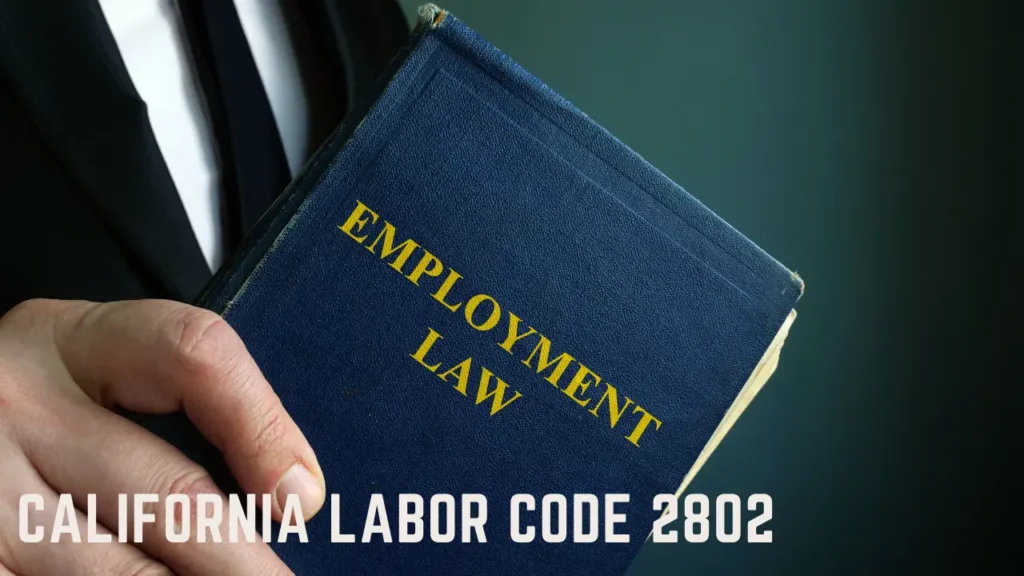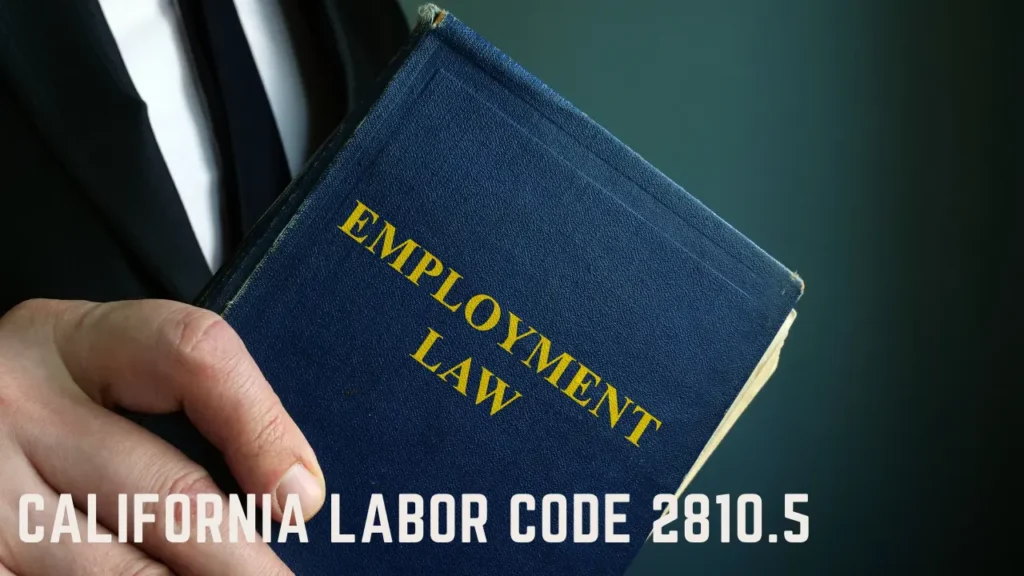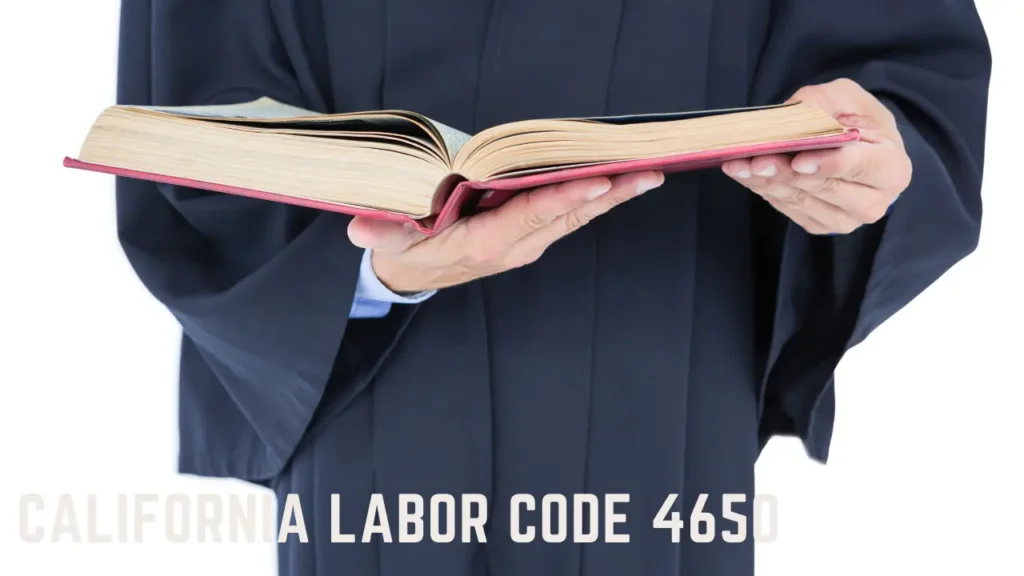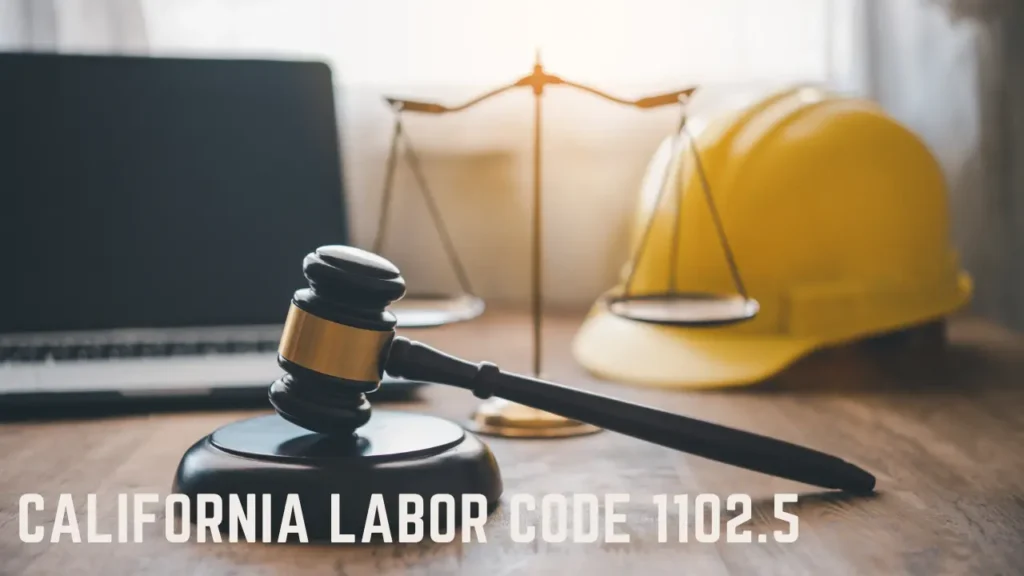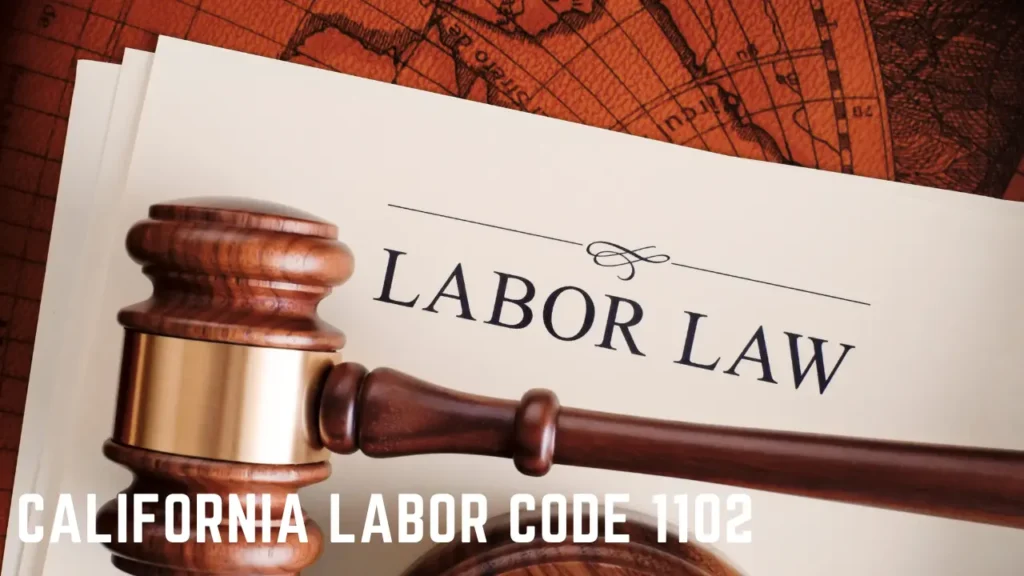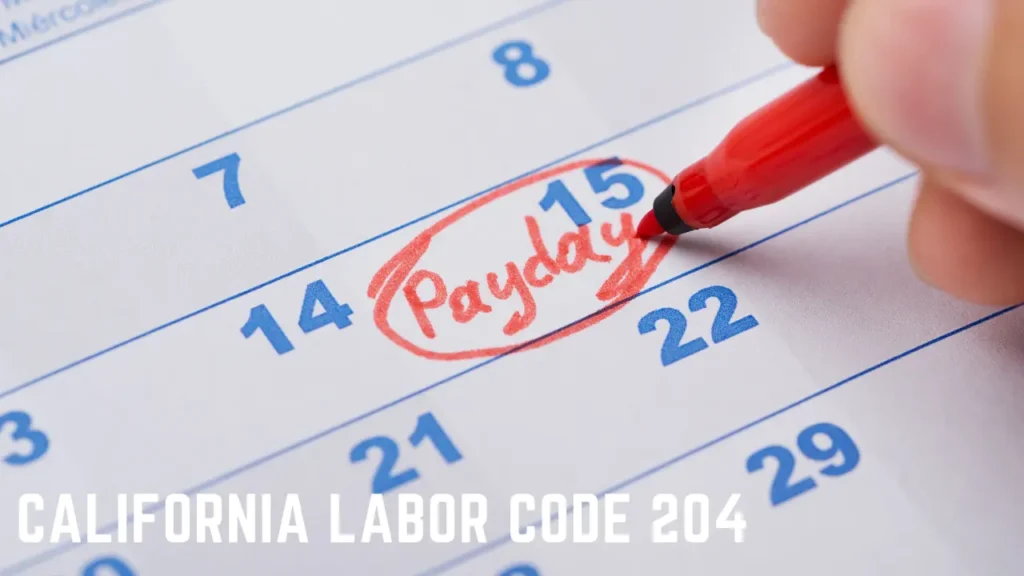Table of Contents
ToggleThis legislation, while seemingly straightforward, carries with it nuances and exceptions that can significantly affect both dealers and salespeople.
The implications of this law, coupled with the interpretations derived from notable court rulings and Department of Labor Standards Enforcement opinion letters, create a complex legal landscape that requires thorough investigation.
As we navigate through this intricate matrix of labor law, we will uncover the subtleties and potential pitfalls that lie within, leaving you better informed and prepared to navigate the intricacies of Labor Code 204.1.
Understanding Commission Payment Requirements
To fully comprehend the commission payment requirements for car dealers in California, it is crucial to understand the specifics laid down by California Labor Code 204.1 LC.
This law stipulates that commissions for car salespeople must be paid monthly, and the payday must be predetermined. It’s important to note that commissions are considered earned and due once the sale is completed and the earnings are reasonably calculable.
This legal framework ensures fair and timely remuneration for salespeople. Exemptions exist if a collective bargaining agreement with different payday terms is in place. Non-compliance with these regulations can lead to legal repercussions.
Thus, understanding these requirements is vital for both dealers and salespeople to ensure lawful business practices.
Legalities of Commission Payments
Building on the understanding of commission payment requirements, it’s crucial to examine the legal framework that governs these payments, including key legal cases and directives that offer additional insights into this complex subject. California Labor Code 204.1 LC specifically regulates commission payments for car salespeople.
Significant cases such as Areso v. CarMax, Inc. and Keyes Motors, Inc. have further shaped the landscape of commission payment practices. Additionally, the DLSE Opinion Letter 2002.12.09-2 provides further clarification on commission wages.
- Labor Code 204.1 LC is the governing law for commission payments.
- Areso v. CarMax, Inc. and Keyes Motors, Inc. are pivotal cases in this area.
- DLSE Opinion Letter 2002.12.09-2 provides interpretative guidance on the law.
Understanding these legalities is essential for both employers and employees to ensure fair and lawful commission practices.
Impact of Key Legal Cases
Delving into the specifics, it’s crucial to assess the impact of landmark legal cases, such as Areso v. CarMax, Inc. and Keyes Motors, Inc., on the current commission payment practices for car dealers in California. These cases have significantly influenced interpretations of Labor Code 204.1, particularly concerning the timing of commission payments.
In Areso v. CarMax, Inc., the court upheld that commissions are only due once they are reasonably calculable. Conversely, Keyes Motors, Inc. faced heavy liabilities for delaying commission payments. The case underscored the necessity for car dealers to pay commissions promptly upon a sale’s completion.
These rulings have collectively steered employers to refine their commission structures, ensuring timely and due compensation for their salespeople.
DLSE Opinion Letter Insights
Frequently referenced in the context of commission payment disputes, the DLSE Opinion Letter 2002.12.09-2 provides substantial insights into the interpretation and application of California Labor Code 204.1 LC. The letter clarifies the following:
- Commissions are considered ‘wages’ and due when they are ‘reasonably calculable’ and ‘earned.’
- Once commissions are earned and calculable, employers are obligated to pay at least once a month.
- Non-payment or delayed payment of earned commissions can lead to penalties under the Labor Code.
The letter also emphasizes that car dealers must establish a regular payday for commission payments. This DLSE guidance, while not binding, offers valuable interpretation of the law and aids in understanding the rights and responsibilities of both employers and employees within the auto sales industry.
Exemptions to the Labor Code
While the California Labor Code 204.1 LC provides a clear framework for commission payments, there are certain exemptions that car dealers should be aware of. Notably, Labor Code 204.1 LC does not apply to employees covered by a collective bargaining agreement that outlines specific paydays. This exemption allows for flexibility within unionized work environments, as long as the agreement provides for the payment of wages at least once per calendar month on a regular payday.
Additionally, this provision does not apply to employees whose earnings are commission-based and who are employed by a licensed vehicle dealer. Hence, car dealers must understand these exemptions to ensure compliance with the Labor Code and avoid potential legal issues.
Role of Collective Bargaining Agreements
In the landscape of car dealership commissions, Collective Bargaining Agreements (CBAs) play a pivotal role, often serving as the blueprint for wage and payday stipulations for unionized employees. These legally binding agreements, negotiated by a union on behalf of employees, provide a layer of protection and stability that can significantly impact commission structures.
CBAs typically outline specific wage scales, commission percentages, and payday schedules that employers must adhere to. They serve as a safeguard, ensuring that car salespeople receive fair pay, regardless of fluctuations in the market. In the event of a dispute, CBAs provide a framework for resolution, reducing uncertainty and potential conflict.
In essence, CBAs in the car dealership sector serve as an influential tool, shaping the financial landscape and ensuring fair, consistent, and equitable compensation structures.
Employee Support and Assistance
Despite the protective measures offered by Collective Bargaining Agreements, car salespeople may still encounter instances of rights violations, underscoring the importance of accessible employee support and assistance. Legal professionals, like those at Jonny Law, provide invaluable aid to workers facing such challenges.
These experts navigate the intricacies of California Labor Code 204.1 LC and relevant case law to ensure employees receive due commissions. Furthermore, they can interpret and apply Collective Bargaining Agreements, thereby protecting salespeople from rights infringements.
Prompt and detailed responses to enquiries, inclusive of a thorough review of attached relevant documents, provide workers with timely and effective assistance. Ultimately, this support empowers car salespeople, promoting fair labor practices within the industry.
Choosing the Right Legal Help
Selecting the appropriate legal aid is an essential step that can significantly impact the outcome of labor law issues, particularly in the context of car dealership commissions. The right legal help can offer expert advice, guide you through complex legal procedures, and represent your interests effectively.
- Expertise: Ensure that your chosen legal help has specific experience in labor law and, more specifically, in dealing with car dealer commissions.
- Reputation: Look for a law firm or practitioner with a solid reputation and positive client feedback.
- Accessibility: Accessibility is key. Your legal aid should be readily available to answer your queries and guide you throughout the process.
Careful consideration of these factors will assist you in securing the most suitable legal aid, thus ensuring the best possible outcome for your case.
Contacting Legal Professionals
Reaching out to proficient legal professionals is a pivotal step for employees who may be grappling with potential violations of their rights, particularly in the context of car dealership commissions. When disputes arise over commission payments, legal expertise can help ensure that employees’ rights are upheld under Labor Code 204.1.
Legal professionals with a deep understanding of the complexities of labor law can provide critical guidance. They can analyze the specific circumstances, advise on potential legal remedies, and, if necessary, represent the employee in court. Their role extends beyond legal advice to include advocacy and negotiation with employers, thus securing the best possible outcomes for their clients. Therefore, contacting legal experts should be a priority for employees facing commission-related disputes.
Conclusion
In conclusion, understanding California’s Labor Code 204.1 is critical for those working in the auto industry, given its influence over commission payments.
Notably, exemptions, legal cases, and DLSE opinion letters play significant roles in their interpretation.
When faced with potential violations, professional legal assistance, such as that offered by JonnyLaw, can provide invaluable guidance.
Knowing one’s rights and seeking appropriate help are essential steps in ensuring fair labor practices.

